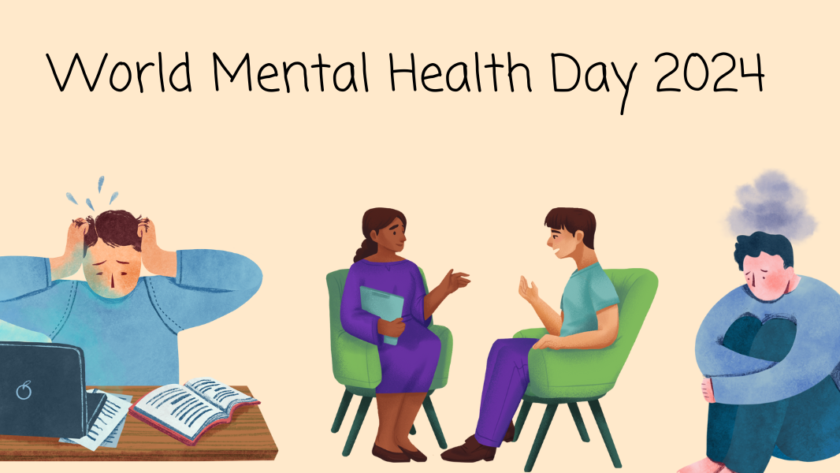In the world of observances, today’s is especially important, since this is something that affects everyone, whether we realize it or not. Today is World Mental Health Day 2024, and this year’s theme is “Mental Health at Work.”
Before I go any further, I should mention that I believe that everyone who wants a job deserves one, and not only should they have ‘a’ job, they should have a job that pays em something they can live on, no matter what the cost of living in their area is. Periodt. End of.
Having a job and mental health intersect far more than some realize they do, namely b/c having a job and the means to pay bills takes so much worry and burden off your back. I speak from experience in that respect. The two years I spent job hunting, the bulk of it while my mom was on her downward spiral and in hospice, destroyed me mentally and emotionally.
I’m still reaping the consequences of it, and it’s been nearly 2 years as of this post.
This post from Secretary General and Professor Gabriel Ivbijaro, MBE, JP talks about how the connection between mental health and employment isn’t a new discovery, stating that over 5,000 years ago, communities in Egypt subscribed to the belief that a healthy life came about from emphasizing work and family.
At the same time, the statistics quoted at 10% to 15% of those who deal w/ mental health issues being employed are abysmal and pathetic. Ivbijaro goes on to mention that if the Powers that Be helped to increase the employment rates among those w/ mental health issues to 50%, this will reduce the stigma attached to mental health by making a more inclusive environment, and also lessen the reliance on state benefits to get by.
Seriously, how can anyone expect someone to live on state benefits, since they pay so little?
Anyways, back to the inclusivity bit. This would tie into pretty much any DEIA/DEIB initiative, since the ultimate endgame is inclusion across identities and disabilities.
However, for those already in the workforce, employment and mental health can reach a point of diminishing returns when the employment is either physically or emotionally unsafe. This can happen when the job requires dealing w/ hazardous substances, long hours when it doesn’t have to be that way, and worse yet, higher-ups who behave abusively toward their subordinates.
I’m gonna make this clear: nobody deserves to be abused in order to make a living, and if you’re in this predicament, you deserve better than what’s being done to you. Nobody ever has the right to treat you the way they’re treating you. Idgaf what happened to the doer however long ago, or what their credentials are. Nothing justifies their shitty, cowardly, garbage behavior, and it never will.
The connection between mental health and employment isn’t new, but this post from WFMH President Tsuyoshi Akiyama mentions that it took the pandemic in order for ppl to come to the conclusion that this is indeed the case.
It’s sad that this is what it took, but it’s where we’re at. We can only move forward, since what’s done is done. Akiyama mentions a goal to work toward building a thriving culture of contribution and productivity by placing mental health at the forefront for a company’s team members. This is something that companies can’t afford not to do, since the financial cost comes at roughly $1T USD per year, based off WHO estimates.
So, where does this leave us? A good place to start is by making gainful, thriving employment accessible to those who deal w/ mental health issues when they’re otherwise wholly qualified for whatever roles they’re looking for. If not? Instead of using mental health as an excuse to write someone off and count em out, how about training programs to overcome those barriers to employment in whatever industry they’re interested in?
Keep in mind that this is just me, thinking out loud, and that I’m nowhere near an expert. I don’t play one on TV. I’m only speaking for myself, and obviously mileage varies. But the status quo is unacceptable. Over to you, readers. How are you gonna spend World Mental Health Day 2024? I’d love to hear your thoughts and takeaways, so let’s talk.



